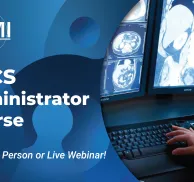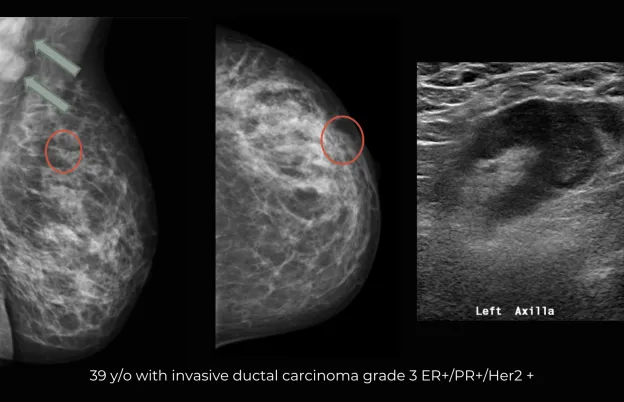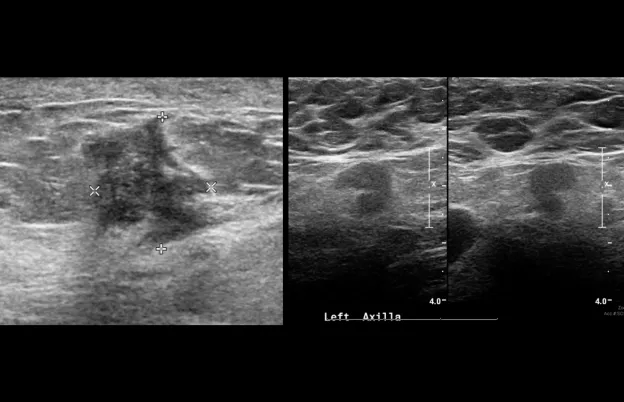
The Role of Genetics in Breast Cancer Screening
About this Program
Patient History Matters More Than Ever
This webinar will examine the essential role of genetics in breast cancer screening for patients with a heightened lifetime risk. Attendees will learn how genetic insights can influence patient management and care, guiding more personalized screening strategies. By understanding genetic risk factors, patients and providers are empowered to make informed, proactive decisions for improved health outcomes. This session highlights how genetic knowledge is transforming breast cancer care and enabling more effective decision-making for patients and healthcare professionals alike.
Educational Objectives
This course will provide knowledge about breast cancer risk factors, gene mutations, testing, and patient decisions for treatment of prevention with drugs and possible surgery.
- Understand breast cancer screening guidelines and key statistics related to prevalence and risk factors
- Understand the role of BRCA1, BRCA2, and other less common mutations in breast cancer risk, including implications for both men and women
- Explore how the “Angelina Effect” has influenced public awareness and decisions around genetic testing
- Describe the role of genetic counseling in risk assessment and understand the options available for genetic testing
- Learn about different risk assessment tools used for analyzing breast cancer risk
Schedule
What this course will cover
Breast Cancer Screening
- Medical organizations
- Recommendations per organization
Breast Cancer Statistics
- Race and ethnicity
- Breast cancer risk factors
Gene Mutations BRCA1 and BRCA2
- Gene mutation discoveries
- Ashkenazi Jewish
- Lifetime Risk
Inherited Genes Less Common
- Somatic mutations
- How many genes are tested for breast and ovarian
Angelina Effect
- Angelina Jolie
- Prophylactic mastectomies
- Judgement
Male Gene Mutations
- Risks for men
- How often to screen
- Prevention
Genetic Counseling
- Who should get genetic counseling
- Alternatives
Testing for Gene Mutations
- Requirements for testing
- Insurance
- Negative results
Risk Assessment Software Tools
- Common risk assessment
- Required questions for assessment
- Guideline changes
Case Studies
- Case studies showing different imaging modalities
- Mutation results
- Patient decisions and experience
Audience
Who should attend?
This webinar is for mammography technologists who want a deeper insight into breast cancer risk factors and patient experiences.
Program Faculty
Meet your presenter(s)

Deborah Davis
MSRS, RT(R)(M)(QM)
Deborah Davis has been a mammographer for almost 30 years. She was a lead mammographer at MD Anderson Cancer Center for over 25 years. Performed diagnostic and screening exams, stereotactic breast biopsies, breast localizations, executed quality control, and mobile mammography. She retired in December 2023, but works part time. Deborah has taught continuing education in mammography since 2006, and has been with MTMI since 2020. Deborah created a mammography curriculum at the University of Texas MD Anderson School of Health Professions and lead the program for four years before retiring. She continues to teach portions of the initial mammography program including digital breast tomosynthesis 8-hour requirement. She also teaches several other mammography continuing education courses. Breast health is her compassion and she continues to share her experiences and knowledge to allow the future generations to continue the fight.
Credits
Accredited training programs

ASRT Pending
Category A/A+ CE credit is pending approval by the ASRT. An application for 2 hours of credit for radiologic technologists recognized by the ARRT® and various licensure states has been filed.
Tuition
Convenient payment options available
| Audience | Price | Early Price | Member Price | Member Early Price |
|---|---|---|---|---|
| Technologist | $49.75 | $47.25 | $44.75 | $42.50 |
Early Pricing Guidelines
Qualifying 'Early' registrations must be made at least 4 days in advance for the program.
Cancellation Policy
Webinars less than 8 hours of credit
Refunds, minus a $15 processing fee, will be granted for cancellations received at least 3 days prior to the program. Cancellations received within 3 days of the webinar will receive a credit toward a future MTMI program, minus the $15 processing fee. No refunds will be made after the webinar starts. MTMI reserves the right to cancel any scheduled program because of low advance registration or other reasons. MTMI’s liability is limited to a refund of any program tuition paid. WEBINAR ATTENDEES that cannot log in due to unsolvable technical issues beyond their control will be eligible for a full refund.














 at checkout.
at checkout.